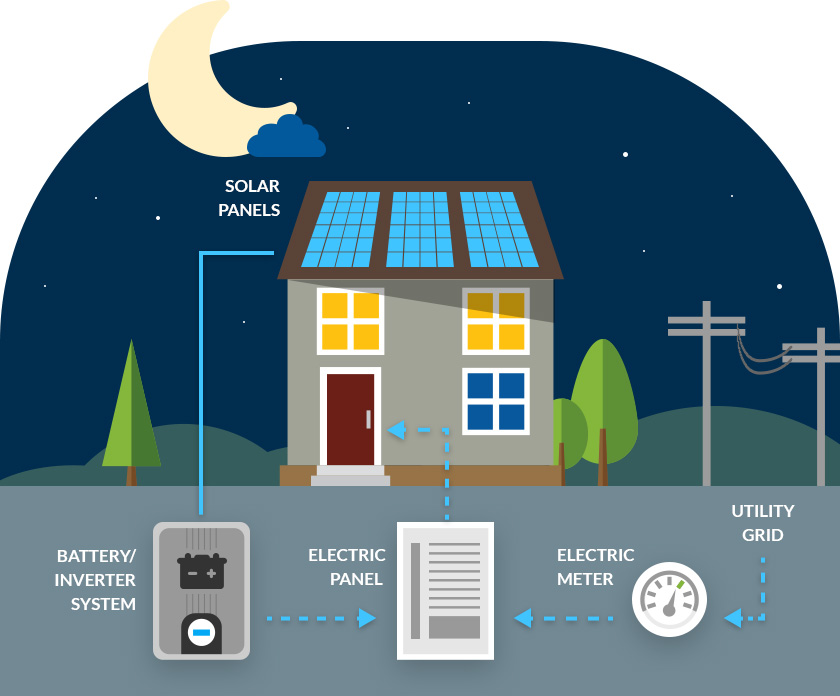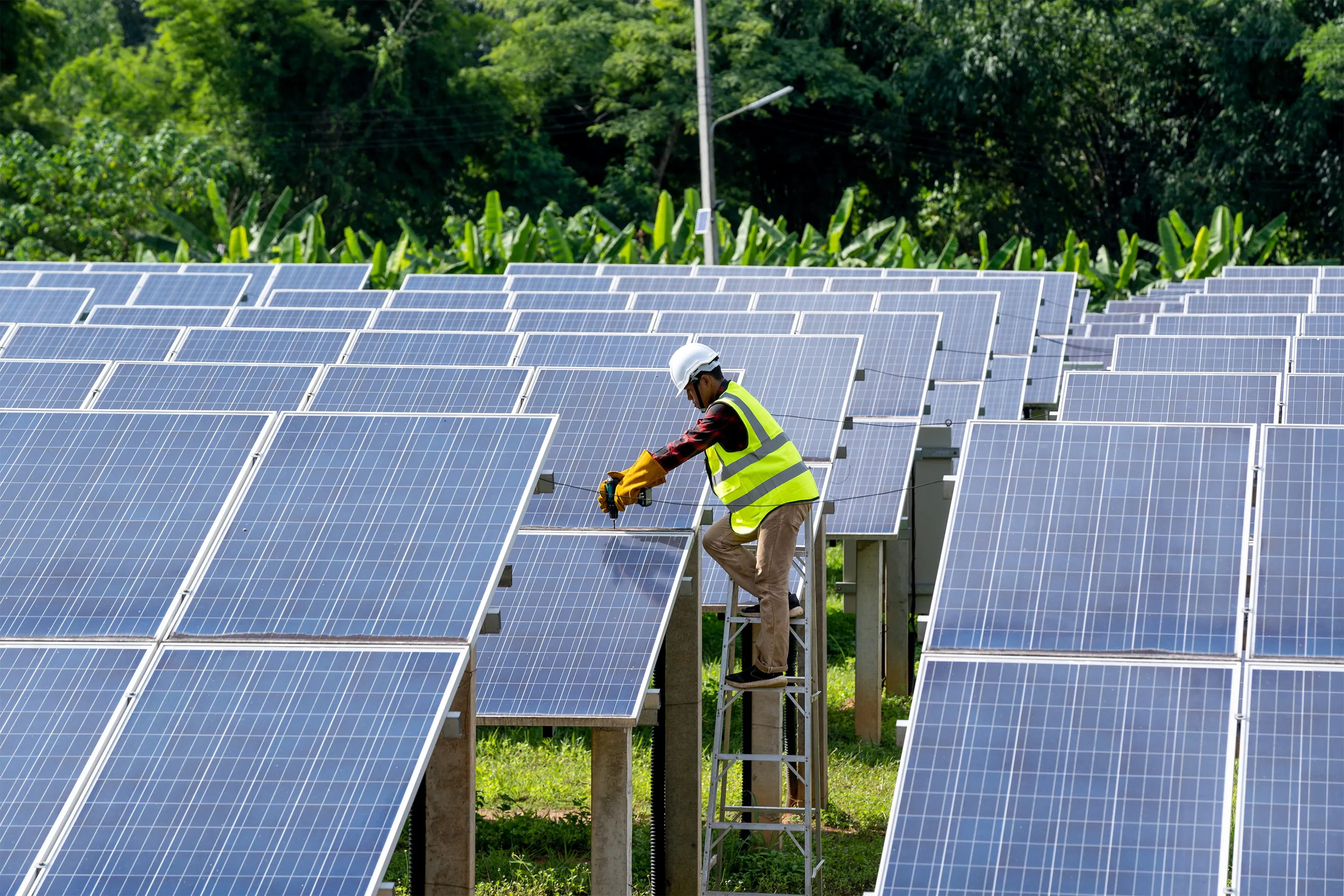Getting The Solar Panel Company To Work
Getting The Solar Panel Company To Work
Blog Article
Certified Solar Installers Virginia: Lumina Solar Specializes In Supplying Advanced Photovoltaic Solutions For Houses And Businesses
History and Establishing
Have you ever wondered how a photovoltaic panel business springs from a mere spark of inspiration into a powerhouse of renewable resource? It frequently starts with a vision-- one fueled by a mix of innovation, determination, and a pinch of serendipity. The journey of numerous solar companies mirrors the advancement of the innovation itself: from bulky, inefficient panels to sleek, high-efficiency marvels utilizing the sun's bounty.
The Early Days
In the late 20th century, when solar power was still a specific niche principle, pioneers planted seeds for what would end up being a worldwide motion. Envision a small workshop filled with curious engineers, tirelessly try out photovoltaic cells. Their enthusiasm was palpable, typically driven by a desire to fight environment modification and minimize reliance on fossil fuels.
One such anecdote is about a founder who, inspired by an outdoor camping journey, recognized that even in remote locations, the sun could power vital devices. This simple observation stimulated a business's objective to democratize access to tidy energy.
Establishing Concepts

- Innovation: Constantly pushing the limits of solar innovation to improve efficiency and resilience.
- Sustainability: Devoting to environment-friendly production and lowering carbon footprints.
- Availability: Making renewable energy solutions cost effective and useful for everyday users.
Turning points in Growth
| Year | Secret Occasion |
|---|---|
| 1985 | Business established in a small garage, focusing on research study and advancement. |
| 1995 | Very first business solar panel product introduced, getting local attention. |
| 2005 | Broadened to worldwide markets, accepting worldwide eco-friendly energy goals. |
| 2015 | Presented innovative photovoltaic panel innovation with improved energy conversion. |
Isn't it interesting how these incremental steps, often overlooked, shape the energy landscape today? The photovoltaic panel business story is not almost innovation; it's about a ruthless quest for a brighter, cleaner future.

Developments in Photovoltaic Panel Technologies
Ever discovered how some solar panels shine brighter and last longer? It's not magic; it's the science of photovoltaic effectiveness. Modern photovoltaic panel business invest greatly in innovations like bifacial cells, which catch sunshine from both sides, enhancing energy harvest without broadening roofing space. Have you ever questioned why some panels perform much better on cloudy days? That is because of advances in thin-film solar innovation, which click here prospers under diffused light conditions.
Item Variations Customized to Distinct Requirements
One size never fits all. Photovoltaic panel suppliers now offer:
- Monocrystalline panels for optimum efficiency and smooth aesthetic appeals, suitable for space-constrained rooftops.
- Polycrystalline panels, which offer a cost-effective option without compromising too much output.
- Building-integrated photovoltaics (BIPV), merging solar tech perfectly into architectural components like windows and facades.
Choosing the ideal item isn't simply about upfront cost; it has to do with matching your environment, energy objectives, and long-term cost savings. Homes shaded by trees need panels that stand out in low-light scenarios, something numerous ignore till energy expenses climb all of a sudden.
Technical Tips for Optimal Selection
- Assess the temperature coefficient-- lower values mean panels lose less performance on hot days.
- Search for panels with enhanced anti-reflective coatings to make the most of light absorption.
- Consider the panel's guarantee not just for defects, but for ensured power output over decades.
- Do not ignore the value of the inverter innovation coupled with the panels; it can make or break your system's performance.
Beyond Panels: Emerging Patterns
Think of photovoltaic panels that adjust their angle automatically to chase after the sun-- tracking systems are ending up being more available, increasing yield significantly. Or solar tiles that blend undetectably into your roofline, changing your home into a quiet, self-sufficient power generator. These developments are reshaping what a solar panel business provides-- not simply items, but incorporated energy solutions.
Market Existence and Global Operations
Ever wonder why some photovoltaic panel business seem to grow up in every corner of the world while others hardly make a ripple? The distinction lies not just in innovation however in mastering the art of navigating diverse markets. Broadening internationally resembles planting seeds in various climates-- you should understand each environment's unique conditions to prosper.
Take, for circumstances, the elaborate dance of logistics and supply chain management. Delivering panels midway across the world isn't just about distance; it's about timing, customizeds, tariffs, and adapting to regional demand fluctuations. A company with robust worldwide operations prepares for these variables, ensuring panels show up on schedule without inflating expenses. This foresight is no small task and typically separates market leaders from followers.
Secret Strategies for Expanding Market Presence
- Localized production: Establishing production centers near target markets lowers shipping hold-ups and import complexities.
- Strategic collaborations: Collaborating with regional companies speeds up market penetration and develops trust.
- Adaptive product style: Customizing photovoltaic panel tech to weather, sun intensity, and infrastructure nuances boosts efficiency and acceptance.
What about the human aspect? Solar panel business operating globally need to fix up cultural differences and regulative nuances without losing sight of their core mission. What works in a sun-drenched desert may falter in a humid coastal region. Often, the most ingenious service is just listening-- soaking up local insights to refine technology and technique.
Professionals often recommend a phased rollout rather than a shotgun growth. Why run the risk of overextension when measured development constructs sustainable momentum? Scaling wisely implies balancing aspiration with operational resilience - Commercial Solar Panels Virginia. In the race for sustainable energy supremacy, perseverance can be as important as speed.
Ecological Impact and Sustainability Practices
When photovoltaic panels initially emerged, numerous presumed they brought no environmental luggage. However, the reality is more nuanced. The production of solar batteries includes unusual earth metals and energy-intensive processes, which can leave a large carbon footprint before the panels even reach roofs. The real ecological expense depends heavily on the sustainability practices used by the photovoltaic panel business throughout the lifecycle of their items.
How frequently do we stop briefly to consider what happens to photovoltaic panels at the end of their beneficial life? Unlike batteries or electronic devices, solar panels can last 25-30 years, however disposal and recycling paths stay underdeveloped in numerous regions. A business devoted to decreasing ecological harm will have a robust strategy for recycling photovoltaic materials, restoring valuable silicon, glass, and metals to avoid land fill build-up.
Key Sustainability Techniques
- Making use of low-impact manufacturing methods that minimize water and energy intake.
- Implementing closed-loop systems to recycle production waste back into brand-new panels.
- Taking part in transparent supply chain audits to make sure ethical sourcing of basic materials.
- Designing panels for easier disassembly to assist future recycling efforts.
It deserves noting that some solar business have pioneered ingenious methods, such as incorporating eco-friendly components or using less hazardous chemicals throughout fabrication. This not only lowers ecological pressure but also sets a precedent for the industry. The concern remains: can the solar market truly pivot towards a circular economy model without compromising effectiveness or cost?
Professional Tips for Evaluating Sustainability
- Ask about the business's commitment to carbon-neutral manufacturing and whether they balance out emissions.
- Investigate if they partner with licensed recycling centers dedicated to solar panel waste.
- Try to find transparency reports detailing environmental impacts and sustainability objectives.
- Think about the longevity and service warranty of panels as an indirect procedure of resource efficiency.
In the end, choosing solar power ought to indicate more than simply slashing electrical power bills; it's about nurturing a future where energy is collected responsibly and waste is attentively managed. Solar panel companies that embrace this viewpoint not only brighten homes but also cast a brighter light on sustainable innovation.
Report this page